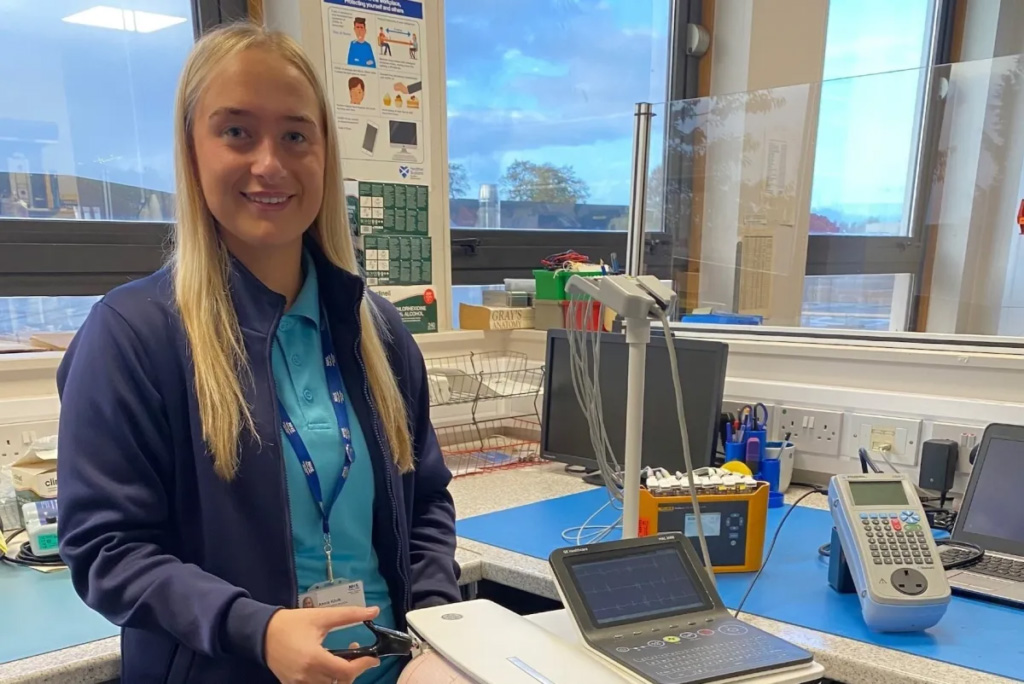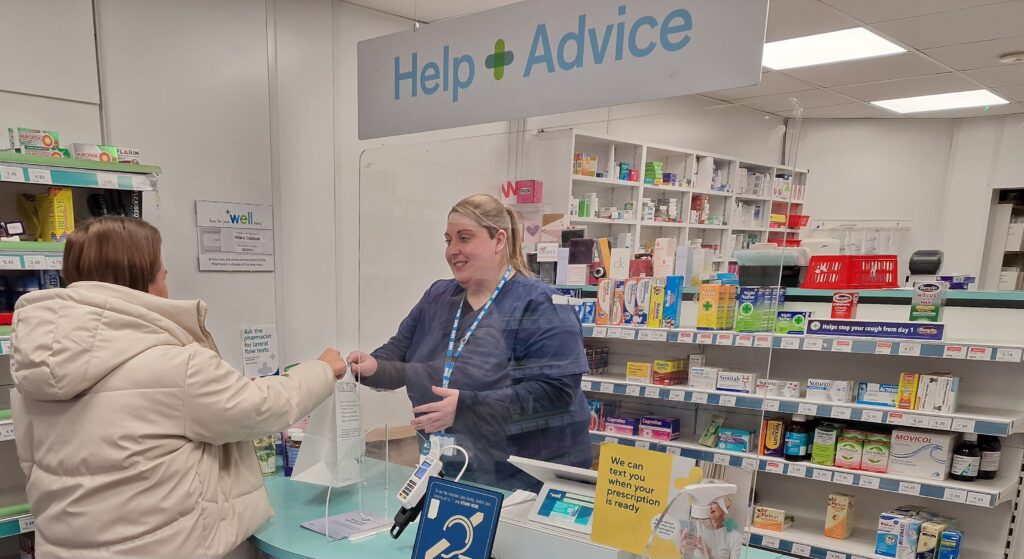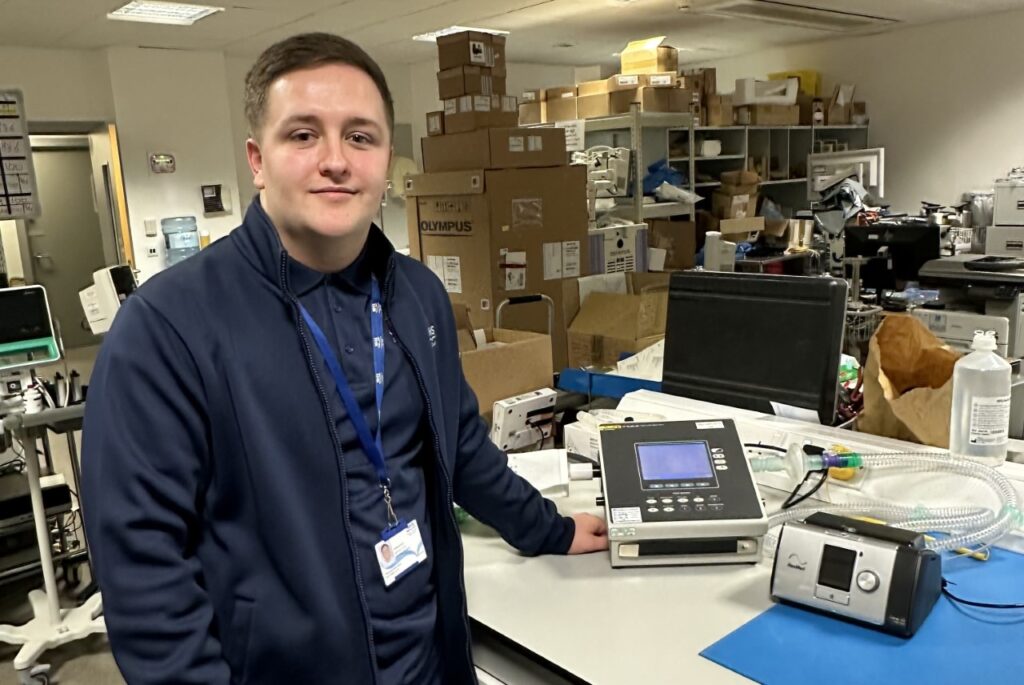Placements within NHSGGC
NHSGGC is the largest health board in the UK. We provide healthcare to over 1.2 million people and employ around 38,000 staff, many of which are Allied Health Professionals (AHP’s).
NHSGGC AHP staff have a positive and integral role to play in the delivery of healthcare. NHSGGC are committed to nurturing the future generation of AHP’s through AHP student practice placements. Working in tandem with Higher Education (HE) and HEIs we support and facilitate pre-registration practice based learning and development.
NHSGGC offers client facilities and services in both acute and community settings, over a vast geographical area from Greenock to Glasgow and many places in between. If you are coming to NHSGGC for a placement you may be placed in one or many of the settings where we provide health care to service users.
You might feel a mixture of emotions about coming on placement, this is ok and perfectly normal.
You will find in the sections below, relevant and necessary pre-placement information including confidentiality to uniform policies, what to expect from the placement and what we expect from you. This, in turn can help to empower and create optimistic emotions which can positively impact on confidence and learning throughout your placement.
Profession specific information will be available soon.
Student Wellbeing
At this time, each Scottish HEI is providing a range of wellbeing support to which you can self-refer.
A Support for AHP Students poster has been created, detailing local resources which may support AHP students during the cost of living crisis.
Resources
AHP student and practice educator handbook
Provides a variety of resources and information for students and practice educators, including:
- student use of electronic information systems.
- code of conduct
- policies
- student car insurance
- student feedback
- students raising a concern
- membership of PVG Scheme
- fire safety for students
- Templates for recording student information and reflection.
The handbook is updated quarterly to ensure it reflects current AHP information and resources. However, if you feel information needs to be updated or added, please contact, elspeth.lee4@nhs.scot.
AHP Student Feedback Questionnaire
To allow AHPs to improve and understand the student experience it is important for us to find out what went well and where we could improve the placement experience. It is also very valuable to share the different challenges that were experienced and how these were perhaps overcome. Although voluntary to complete, we would greatly appreciate your participation with the AHP Student Feedback Questionnaire. Your responses to questions are anonymous, unless you choose to add the placement area details.
The data from the survey will initially be shared with the AHP professional leads for dissemination through their service.
The link to the survey should be provided by your Practice educator who is working directly with you on placement within NHSGGC,
- as a link within an email
- on student induction paperwork
- in student information folders
- in written form as a URL
AHP practice based learning agreements
Since 2010, there have been AHP Practice Placement Agreements in place between each Scottish HEI that runs pre-registration programmes and each NHS Board. Previously known as Practice Placement Agreements (PPA). The AHP PPA’s are currently being refreshed (now to be called AHP Practice-based Learning Agreement ).
NHSGGC have AHP Practice-based Learning Agreements with Glasgow Caledonian University, Queen Margaret University, Robert Gordon University, University of Strathclyde and Edinburgh Napier University
What is new in the AHP Practice-based learning Agreement?
The revised agreement provides greater clarity and consistency in approach to governance arrangements for professions, Universities and Practice Education Providers. It consolidates current custom and practice that has evolved in relation to student Practice-based Learning since 2009.
The approach to refreshing the agreement has been to include agreed content written during the original signing, and subsequent developments that underpin the provision of AHP student Practice-based Learning e.g. HCPC Guidance on Conduct and Ethics for Students (2017), AHP placement cancellation guidance, provision of practice educator training etc. The refreshed content has an operational focus to address and balance the requirements of different stakeholders.
What has not changed?
The agreements clarify contemporary governance arrangements for Student Practice-based learning. The approach to refreshing the agreements has not included a review of the ongoing commitment to student ‘Practice Based Learning Weeks’ (placement weeks) per profession. This work is being progressed separately and will involve Scottish Government, AHP Directors, Practice Education Providers and professional bodies.
AHP Students from non-Scottish HEI’s
AHP students who are studying at non-Scottish HEI’s often have placements within NHSGGC, however as there are no practice-based learning agreements with these institutions, governance arrangements regarding issues such as PVG, immunisations etc must be discussed with the HEI and student prior to the student coming on placement.
HCPC regulatory body
Health and Care Professions Council (HCPC) is the regulating body for health, psychological and social work professionals. They protect and set standards around education and training which includes continuing professional development (CPD).
NHS Education for Scotland (NES) funded AHP practice education programme to support high quality placement opportunities. The site offers support on pre placement orientation and induction material, Practice Educator CPD and support and an overview of AHP Practice based learning partnership agreements.


















